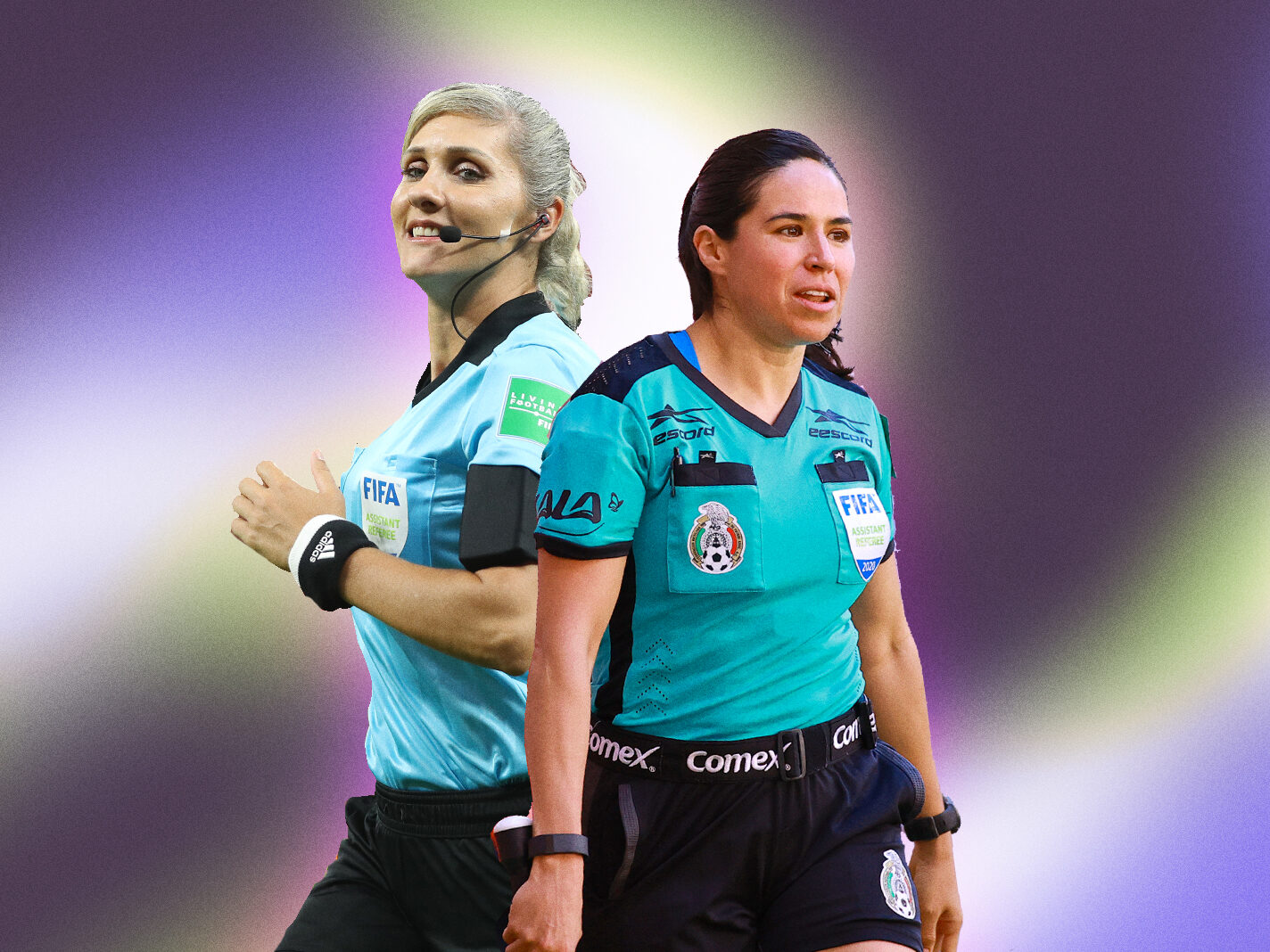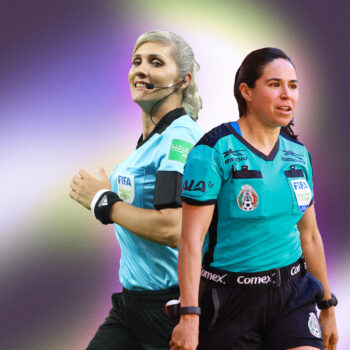On Thursday (December 1), Mexican referee Karen Díaz and Brazilian referee Neuza Back will be part of the first all-women refereeing team for a men’s World Cup match in the history of the tournament.
Díaz and Back will be assistants to Frenchwoman and main referee Stephanie Frappart. The match they will be calling is between Costa Rica and Germany at 2 pm EST/11 am PT on December 1, 2022. A fourth referee will also take part in the match, but as of press time, FIFA has not announced their name yet.
“History is set to be made on Thursday!” FIFA tweeted. “There will be an all-female refereeing trio taking charge for the first time at a men’s #FIFAWorldCup in the match between Costa Rica and Germany.”
Pierluigi Collina, chairman of the FIFA Referees Committee, said FIFA was thrilled to announce the news. “They were not selected because they are women, but as FIFA referees,” Collina said. “They could officiate any game.”
Prior to this decision, Díaz and Back had already made history. They are the first women from Latin America to ever be selected to referee in a Men’s World Cup tournament. When they were first chosen to go to Qatar, Collina said, “This concludes a long process that began several years ago with the deployment of female referees at FIFA men’s junior and senior tournaments. In this way, we clearly emphasize that it is quality that counts for us and not gender.”
Before traveling to Qatar, Díaz talked about what it means to get the opportunity to referee on one of the biggest stages in the world. “You only have one life,” she said. “And in this life, I want to achieve my dreams.”
Three other women – Salima Mukansanga of Rwanda, Yamashita Yoshimi, of Japan, and Kathryn Nesbitt of the United States – are also in Qatar to referee matches.
FIFA’s decision also sends a strong message about gender and inclusivity to a country that continues to have restrictive rights for its women. Fortunately, at least, in this case, sports seem to be the great equalizer.




